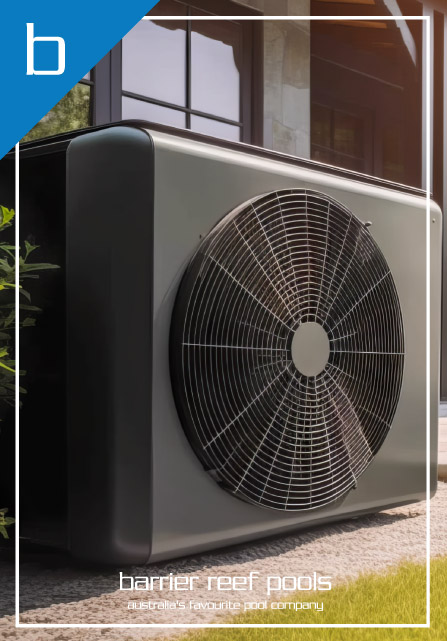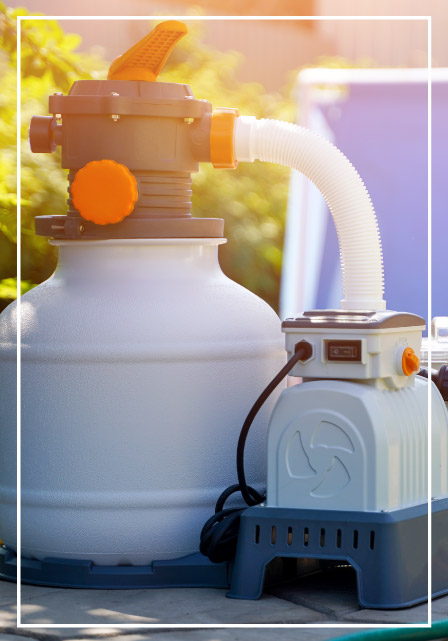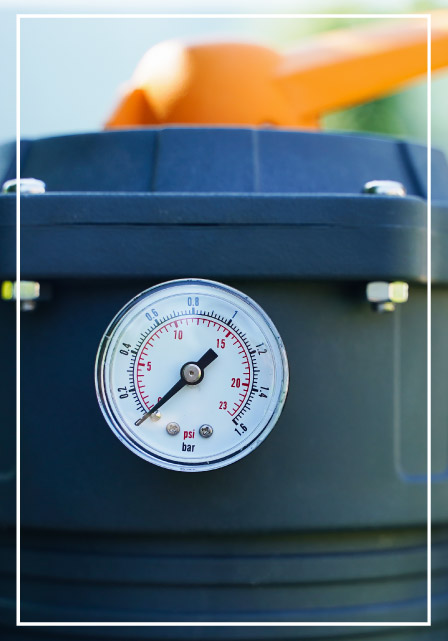Heat Pumps: Everything You Need To Know!
Swimming pools are a wonderful and luxurious addition to any home, providing a refreshing escape from the summer heat. However, the enjoyment of a pool can be significantly diminished if the water is uncomfortably cold, making it less inviting for a swim. This is where heat pumps can come in handy.

A heat pump specifically designed for swimming pools can be a complete game-changer, allowing you to extend your swimming season well beyond the confines of summer by effectively maintaining a comfortable water temperature. With the help of a heat pump, you can enjoy the soothing benefits of your pool even during the cooler months, creating a year-round oasis of relaxation and enjoyment in your own backyard. So why settle for a limited swimming season when you can enhance your pool experience with the incredible advantages that a heat pump brings? Let’s dive in and uncover everything you need to know about pool heat pumps.
What is a Heat Pump?
A heat pump is a remarkable device that efficiently transfers heat from one location to another. Unlike a traditional heater, which generates heat, a heat pump harnesses the power of thermodynamics to simply move existing heat. When it comes to swimming pools, the heat pump takes advantage of the surrounding air, extracting its warmth and transferring it to the pool water, creating a comfortable and enjoyable swimming experience. This innovative technology ensures optimal energy efficiency and allows for year-round enjoyment of your pool, regardless of the weather conditions.
Why Use a Heat Pump?
There are numerous advantages to using a heat pump for your swimming pool. One of the most notable benefits is the exceptional control it provides over the water temperature, allowing you to enjoy your pool all year round, regardless of the season. Additionally, heat pumps are highly energy-efficient, operating on electricity while consuming significantly less energy than conventional electric heaters. This not only helps reduce your carbon footprint but also saves you money on energy bills in the long run. By choosing a heat pump for your pool, you can indulge in the perfect swimming experience while being mindful of the environment and your wallet.

Types of Heat Pumps
When it comes to heat pumps for swimming pools, there are two primary types: air-source heat pumps and water-source (geothermal) heat pumps. Air-source heat pumps work by transferring heat from the surrounding air to the water in the pool, providing efficient heating. On the other hand, water-source heat pumps utilise a body of water or the ground as a heat source, extracting heat and transferring it to the pool. This innovative technology ensures optimal temperature control, allowing for comfortable and enjoyable swimming experiences.
Choosing the Right Heat Pump for Your Pool
When selecting a heat pump for your pool, there are lots of factors to consider. Firstly, the size of your pool plays a crucial role in determining the appropriate pump size. A larger pool will require a more powerful heat pump to efficiently heat the water. Additionally, it’s important to consider the local climate. If you live in a colder region, it is advisable to choose a heat pump with a defrost function to prevent freezing during the winter months. By considering these aspects, you can ensure optimal performance and energy efficiency for your pool heating system.
If You Have A Fibreglass Pool:
When it comes to selecting a heat pump for a fibreglass pool, you need to consider a few additional factors. Fibreglass pools retain heat better than other pool types due to their insulating properties, which means you may not require as large a heat pump as you might with concrete or vinyl pools. Moreover, fibreglass pools tend to heat up and cool down quicker, which means a heat pump with a higher coefficient of performance (COP) would be beneficial, as it is more efficient at maintaining the desired temperature. Lastly, ensure that the heat pump you choose is compatible with the chemical balance of your pool. Some heat pumps are more resistant to corrosive substances than others, making them better suited to the nature of a fibreglass pool. You can always consult with one of our friendly pool builders to help you select the heat pump that best suits your pool’s unique needs and characteristics.

Installation and Maintenance
The installation of a heat pump should always be entrusted to a qualified professional with expertise in electrical and plumbing work. It is crucial to adhere to strict safety measures during the installation process to ensure the well-being of both the installer and the occupants of the premises.
Once installed, a heat pump requires minimal maintenance. However, routine checks and regular cleaning are strongly recommended to ensure optimal and efficient operation of the system. This includes inspecting and cleaning the filters, checking for any potential leaks or blockages, and verifying the proper functioning of all components.
By following these maintenance practices, you can prolong the lifespan of your heat pump and enjoy its energy-efficient benefits for years to come.
Cost and ROI
Investing in a heat pump may incur a higher initial cost compared to traditional heaters. However, the long-term return on investment is realised through substantial energy savings. Heat pumps harness the natural heat from the air or ground, efficiently converting it into heat for your home. With their advanced technology and eco-friendly operation, heat pumps not only provide warmth but also contribute to reducing carbon emissions. By choosing a heat pump, you are not only investing in your comfort but also in a sustainable and energy-efficient future.
Heat pumps for inground fibreglass swimming pools are an ideal solution for those looking to extend their swimming seasons, save on energy costs, and reduce their environmental impact. By understanding the basics of what they are, how they work, and what to consider when purchasing one, you’re now equipped to make an informed decision about the best heating solution for your pool.
Remember, it’s not just about splashing around in the summer. By investing in a heat pump, you can make your pool a year-round oasis for fun, fitness, and relaxation.
Heat Pumps: Everything You Need To Know!
Swimming pools are a wonderful and luxurious addition to any home, providing a refreshing escape from the summer heat. However, the enjoyment of a pool can be significantly diminished if the water is uncomfortably cold, making it less inviting for a swim. This is where heat pumps can come in handy.

A heat pump specifically designed for swimming pools can be a complete game-changer, allowing you to extend your swimming season well beyond the confines of summer by effectively maintaining a comfortable water temperature. With the help of a heat pump, you can enjoy the soothing benefits of your pool even during the cooler months, creating a year-round oasis of relaxation and enjoyment in your own backyard. So why settle for a limited swimming season when you can enhance your pool experience with the incredible advantages that a heat pump brings? Let’s dive in and uncover everything you need to know about pool heat pumps.
What is a Heat Pump?
A heat pump is a remarkable device that efficiently transfers heat from one location to another. Unlike a traditional heater, which generates heat, a heat pump harnesses the power of thermodynamics to simply move existing heat. When it comes to swimming pools, the heat pump takes advantage of the surrounding air, extracting its warmth and transferring it to the pool water, creating a comfortable and enjoyable swimming experience. This innovative technology ensures optimal energy efficiency and allows for year-round enjoyment of your pool, regardless of the weather conditions.
Why Use a Heat Pump?
There are numerous advantages to using a heat pump for your swimming pool. One of the most notable benefits is the exceptional control it provides over the water temperature, allowing you to enjoy your pool all year round, regardless of the season. Additionally, heat pumps are highly energy-efficient, operating on electricity while consuming significantly less energy than conventional electric heaters. This not only helps reduce your carbon footprint but also saves you money on energy bills in the long run. By choosing a heat pump for your pool, you can indulge in the perfect swimming experience while being mindful of the environment and your wallet.

Types of Heat Pumps
When it comes to heat pumps for swimming pools, there are two primary types: air-source heat pumps and water-source (geothermal) heat pumps. Air-source heat pumps work by transferring heat from the surrounding air to the water in the pool, providing efficient heating. On the other hand, water-source heat pumps utilise a body of water or the ground as a heat source, extracting heat and transferring it to the pool. This innovative technology ensures optimal temperature control, allowing for comfortable and enjoyable swimming experiences.
Choosing the Right Heat Pump for Your Pool
When selecting a heat pump for your pool, there are lots of factors to consider. Firstly, the size of your pool plays a crucial role in determining the appropriate pump size. A larger pool will require a more powerful heat pump to efficiently heat the water. Additionally, it’s important to consider the local climate. If you live in a colder region, it is advisable to choose a heat pump with a defrost function to prevent freezing during the winter months. By considering these aspects, you can ensure optimal performance and energy efficiency for your pool heating system.
If You Have A Fibreglass Pool:
When it comes to selecting a heat pump for a fibreglass pool, you need to consider a few additional factors. Fibreglass pools retain heat better than other pool types due to their insulating properties, which means you may not require as large a heat pump as you might with concrete or vinyl pools. Moreover, fibreglass pools tend to heat up and cool down quicker, which means a heat pump with a higher coefficient of performance (COP) would be beneficial, as it is more efficient at maintaining the desired temperature. Lastly, ensure that the heat pump you choose is compatible with the chemical balance of your pool. Some heat pumps are more resistant to corrosive substances than others, making them better suited to the nature of a fibreglass pool. You can always consult with one of our friendly pool builders to help you select the heat pump that best suits your pool’s unique needs and characteristics.

Installation and Maintenance
The installation of a heat pump should always be entrusted to a qualified professional with expertise in electrical and plumbing work. It is crucial to adhere to strict safety measures during the installation process to ensure the well-being of both the installer and the occupants of the premises.
Once installed, a heat pump requires minimal maintenance. However, routine checks and regular cleaning are strongly recommended to ensure optimal and efficient operation of the system. This includes inspecting and cleaning the filters, checking for any potential leaks or blockages, and verifying the proper functioning of all components.
By following these maintenance practices, you can prolong the lifespan of your heat pump and enjoy its energy-efficient benefits for years to come.
Cost and ROI
Investing in a heat pump may incur a higher initial cost compared to traditional heaters. However, the long-term return on investment is realised through substantial energy savings. Heat pumps harness the natural heat from the air or ground, efficiently converting it into heat for your home. With their advanced technology and eco-friendly operation, heat pumps not only provide warmth but also contribute to reducing carbon emissions. By choosing a heat pump, you are not only investing in your comfort but also in a sustainable and energy-efficient future.
Heat pumps for inground fibreglass swimming pools are an ideal solution for those looking to extend their swimming seasons, save on energy costs, and reduce their environmental impact. By understanding the basics of what they are, how they work, and what to consider when purchasing one, you’re now equipped to make an informed decision about the best heating solution for your pool.
Remember, it’s not just about splashing around in the summer. By investing in a heat pump, you can make your pool a year-round oasis for fun, fitness, and relaxation.


